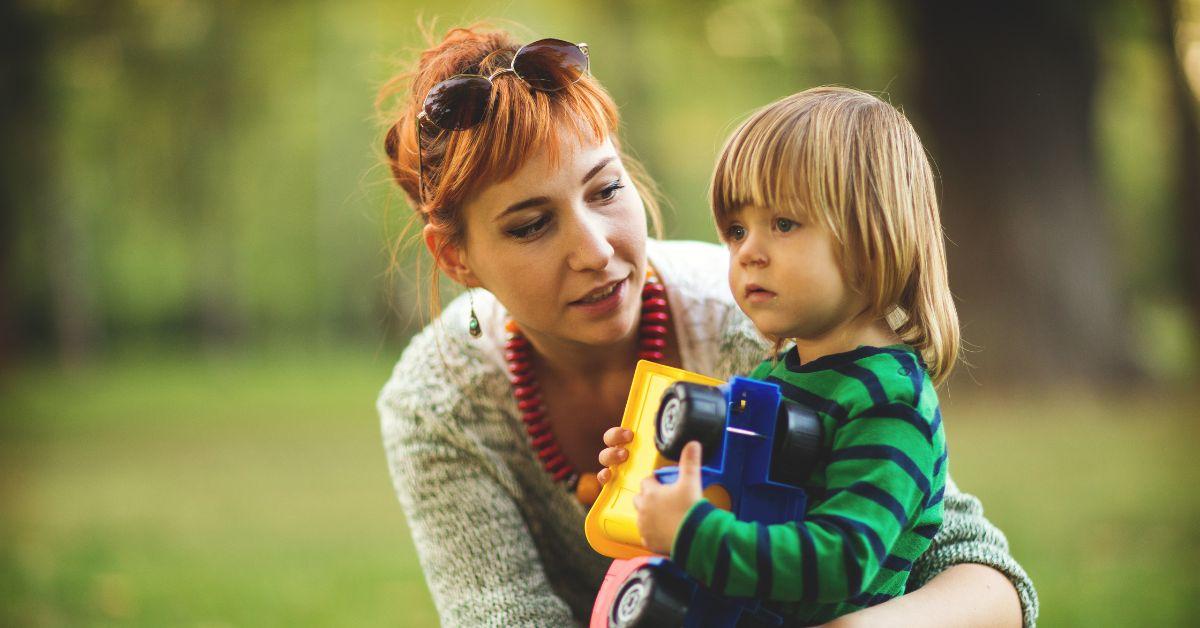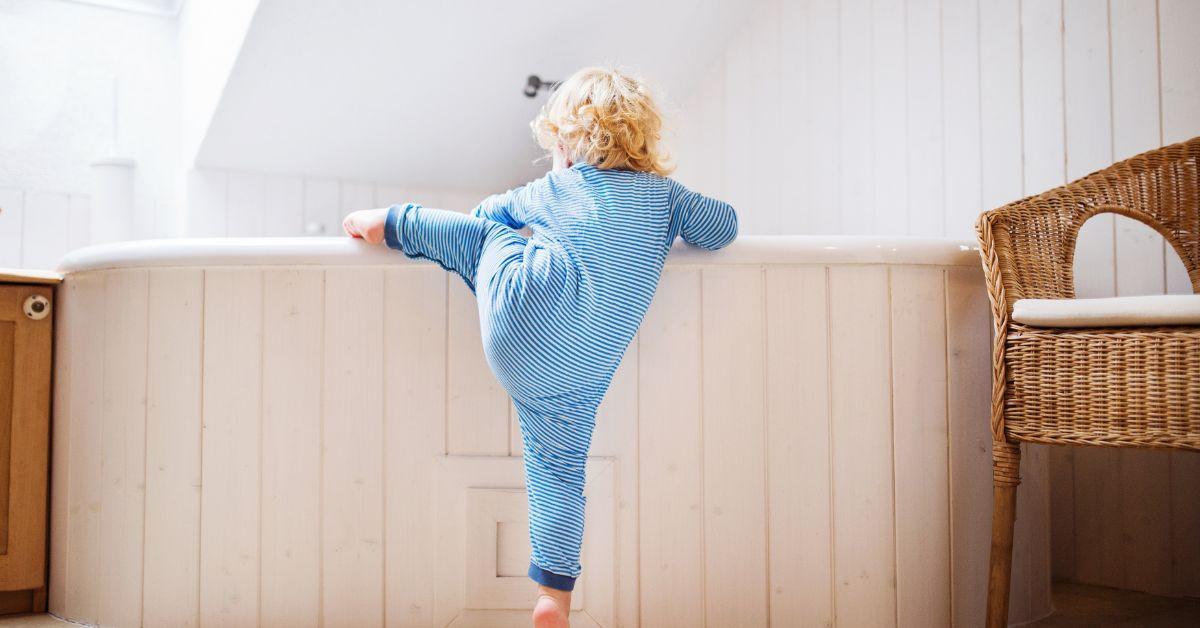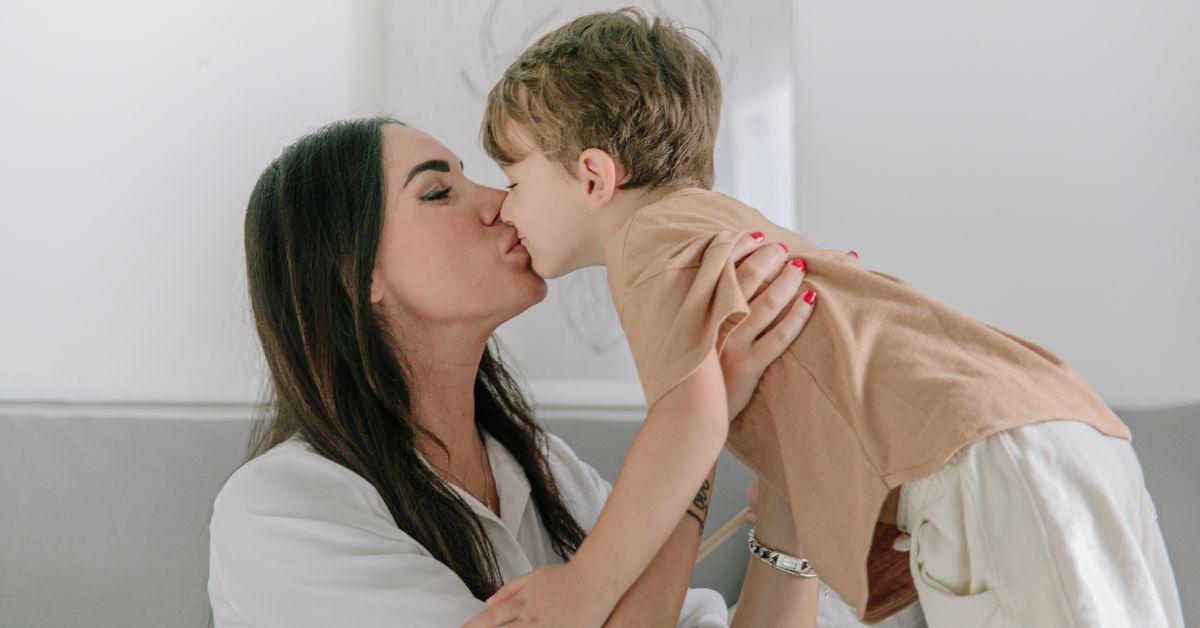Caring For Autistic Babies: A Parent’s Guide
Every parent loves their children more than anything in the world. And they want to provide them with the best possible care. This may be even more true for parents of children who have autism. ASD can be present at varying levels. It is a spectrum. That makes caring for autistic babies especially difficult.
This guide will be all about caring for autistic babies. If you are a parent, then this complete parent’s guide will be all you need to know. Before we get into the details of how to provide the best care, let’s see what autism really is.
What Is Autism?
Autism is a condition that can change how a child interacts. It can be how they interact with their environment and other people. The term ASD stands for autism spectrum disorder. It is classed as a neurodevelopmental disorder.
In the US about 1 in every 44 children is diagnosed with ASD. This is based on 2018 data though. One key thing you need to know is that boys are more likely to be diagnosed with autism than girls.
Autism is a lifelong condition. But with proper care and treatment, some children can live perfectly healthy lives. And this is what this guide will address. If you provide early support in the child’s infant and early years, they can have more fruitful lives in the long run.
Noticing Early Signs Of Autism
The best way to provide early care is to notice the signs early on. This will help you be prepared for caring for autistic babies. Autism can cause different challenges for a baby.
And as they grow older, they might show compulsive and repetitive behaviors, problems with social interaction and communication, and restricted interest. In some cases, they might also have unusual interests or sensitivities. Let’s break down some early signs by age.

6 Months Or Older
When your baby is 6 months old, a common sign is they show fewer happy facial expressions towards people. They might smile less. Babies tend to babble. It is one of the things many of us find adorable.
A baby with autism might babble less or not babble at all. Then there is reduced eye contact as well. They might also react differently to loud noises. And this is despite having normal hearing. Plus, they might also not respond to their names.
9 Months Or Older
By 9 months, babies should use gestures to communicate. However, a baby with autism might not do so. Gestures include reaching, pointing, and similar things. You will see repetitive behaviors developing at this age as well.
They might not play with toys normally. Rather they are hyper-focusing on a particular aspect of a toy. Here are some development toys that can help your toddler.
12 Months To 18 Months
A baby between 12 – 18 months with autism might not speak or say any words. Read this article to know when they should be saying mama. Their interaction with you might be limited as well. They might not respond when you bring them something. Or they never bring you and show you something either.
As they get older, you might also see that they are less interactive. And their communication or play skills are not yet developed. These are some early signs you can look out for when caring for autistic babies.
However, if you have noticed any of these signs, it is best to talk to a professional. They will be able to give you a solid diagnosis. You must always take the proper steps when caring for autistic babies. And a professional is always a good idea. Reach out for expert help the moment you suspect something.
Caring For Autistic Babies: What You Need To Know As A Parent
Knowing how to provide a proper environment and how to act with your autistic baby is the best way of caring for them. In this section, we will tell you all the little details you need to know about that.

You can divide it into segments. They are giving your baby proper structure, creating a treatment plan, learning non-verbal communication, and of course, finding the right support and help. Let’s get started.
Safety And Structure
Children and babies with autism do good with structure. The first order of business is to provide a schedule. Sticking to a schedule will help them be consistent. You need to fix a routine for them.
This includes a fixed time for bed, school, meal time, and so on. They need consistency. So, this will help them deal with the world better. There might be some disruptions in their schedule. But you need to make sure to keep these to an absolute minimum.
And when there will be some disruptions to their routine, you should tell them beforehand. Preparing them will avoid the shock.
You need to be consistent with the routine. Foster a consistent environment. Autistic babies and children have difficulty applying something they have learned somewhere to somewhere else.
A therapist might have a few activities that they do with your kid. You should repeat those at home as well. This will reinforce the learning.
Speaking of reinforcement, you should reinforce good behavior too! Praise them when they learn a new skill. Generally, whenever they do a good thing, you need to let them know how much you appreciate that.
The little things matter. Make it very clear why you are praising them though. This will help it stick. Praises and encouragement do not have to be only verbal. It is best if it is not only verbal.
Explore other ways of praising them. A simple trick could be giving them star stickers when they are good. When they do something praiseworthy, you verbally tell them and also hand them a gold star.
Personalized Treatment
There are a lot of different treatments available for autism. You need to use your best judgment here though. Asking what is best for your baby can often give you mixed answers. It can even give you outright conflicting answers from doctors and teachers.
But since you know your child best, you need to do what is best for them. Autism is a spectrum. And what works for someone else might not work for your child. That is why it is a spectrum in the first place.
There is no one size fits all treatment here. So, what do you do? You ask yourself some questions to help you figure it out. Ask yourself what are your child’s weaknesses and strengths.
Is there any particular way they pick up things faster? Does anything help them learn better? Also, what skills does your child lack? Answers to all these questions will help you craft a proper and personalized treatment for your baby. That will be the most effective course of action.
Think about how you can make the whole thing fun for them. What does your child enjoy the most? One thing you need to ensure is your involvement. It is crucial to the whole process that the best treatment should also not go against the basics.
For example, it should not be unstructured. Reinforce good behavior, have a schedule, and things like that.
Non-Verbal Communication
As we mentioned before, children with autism can have trouble communicating and interacting. Their social skills are not that developed. So, connecting with them can be a little tricky.

Here is the thing, you do not need words only. There are other ways of connecting with your autistic baby. And it could be through non-verbal communication. It can be anything from how you touch and look at them. Or it could be the tone of your voice and body language.
The thing is, your child is also communicating with you using cues. Try to pick up on them. If you are observant, it will become pretty easy to pick up on the signs. Look for any gestures, expressions, and sounds they make.
Especially when they want something, are hungry, or are tired. This will help you identify patterns in their communication. There is another very important thing you need to take note of. You need to create opportunities for some fun.
They are still children. Babies and children need some leisurely time. What makes your child smile and laugh? What do they enjoy? Incorporate those activities into their daily routines.
When talking about non-verbal communication, we need to also talk about their sensory sensitivities. Babies and children with autism are very sensitive to things like sound, touch, smell, and taste.
You need to figure out what kind of sensory stimuli triggers good and bad behavior in them. Knowing these will help you be more careful. There will be things that make your child uncomfortable, calm, or stressed.
Avoid creating that kind of environment or scenario for your child.
Proper Help And Support
Here is another important thing. You do not need to do this alone. Get the right kind of support and professional help to make treatment more effective. Parenting a special needs child can be difficult.
There are sure to be days where you feel unmotivated and even stressed or drained. Do not let these get to you. You need to take care of yourself as well. You can do it in many ways. A really good way of finding support is through support groups.
The great thing about support groups is that you will be able to share your experiences. And other parents can share their experiences. Some things can be common between children. This back and forth can help you emotionally.
Parents can share their experiences and what has worked for their babies. And so can you. Just the act of sharing things with someone will surely help you deal with it a lot better. Most importantly, you will know that you are not alone in this.
When you do need a break, you can opt for respite care. This is whenever a dedicated caregiver takes over. It will give you time to recoup and take some much-needed time off.
Dealing With Common Conditions
We have a whole section dedicated to different therapy you can let your ASD kid take. It addresses common conditions an autistic child may face day-to-day. A therapist will happily walk you through what to do.
But we also wanted to include some ways of dealing with common behavioral or other conditions that autistic children may demonstrate. We will keep it short and to the point.
Anxiety
Anxiety is a common trait in autistic children. There are some effective ways you can deal with this. The first step is to identify what situations or things cause anxiety. Identifying the source and slowly exposing them to that in a safe way is helpful too!
Sleep Problems
ASD kids can suffer from sleep problems which may cause them to be tired throughout the day. But there is a way you can help. Good sleep hygiene practices can be really helpful. A calming routine is also recommended. You can check out this article to see how to sleep better. You can also check out how to create a sleep schedule if you have a 2-month-old baby.
Anger
Another common condition is signs of anger. When they are distressed, they might resort to hitting or yelling. This aggressive behavior is common in some autistic children to express feelings. Behavior therapy can help with issues like these. Also, make a genuine effort in understanding what causes them distress.
GI Problems
Gastrointestinal or GI issues can happen and cause discomfort. For that, the best is to avoid foods that cause problems and also make sure they drink enough water and engage in physical activities.
ADHD
If your kid is showing signs of ADHD, you should promote healthy sleep habits for them and also exercise practice. This will help them concentrate and also do better in school.
Tips For Communicating
Communication is so important to create a bond and trust between the parent and baby. But with ASD, communication is anything but traditional. Your baby does not develop the ‘usual’ social and communication skills.
That is knowing some helpful communication and interactions tips will help you deal with those days when things seem a bit tough. Besides, incorporating these into your daily practice will help you take care of your child. You will not overstep the boundaries and cause them stress.
Patience Is Key
We cannot stress this enough. You most definitely need to be patient with your child. Long pauses can be very helpful since ASD patients might need some time to process information. Slow down your pace when you are talking to them. This is a basic way to start. When something is taking longer do not lose hope. Just keep your patience and try again.
Learn and Observe
As we mentioned earlier, your child is probably communicating with you in their way. Learn how to pick up on the ques. It can be verbal or non-verbal. Learn from your child.
Babies with autism may look at the world and things in a way. You will learn to appreciate this new world. But it may be all too familiar for your baby with autism.
Stay Positive
Positivity is important. There will be stressful days. And other days you will feel like you have made some solid progress. Do not let those days when things do not work out the way hoped to bring you down. It will only make things harder.
Plus, babies with autism respond much better to positive feedback and reinforcement. This is something you need to keep in mind. We already told you to praise your children. Be abundant with praises and good words.
Teach Them To Express Anger Without Aggression
This will help your child a lot in the long run. And you will feel better about it too. Expressing their feelings does not come easy for a child with autism. They might turn to aggression when they are angry.
But teach them how to express themselves when they are upset without aggression. It will help them and also you. Plus, as they grow older, they will also be more likable. Not to mention it also improves their communication skills.
Interact Through Physical Activity
Parent and child interactions are crucial when caring for autistic babies. But children with autism have much shorter attention spans. So, spending time talking to them might not be the best idea. Instead, you can spend time with them through physical activities like running and playing with them.
Show Love And Genuine Interest
Your children need to feel loved. And they need to know that you love them just the way they are. It can be appreciated as well. Show your affection for them and interest in the things they do. Go out of your way if you have to.
Do Not Pay Encourage Attention-Getting Behavior
ASD patients can act out just to get your attention. You should ignore this behavior though. Otherwise, it will not do any of you any good. This goes back to our rewarding good behavior point.
Looking Into The Right Treatment For Autistic Babies
If you want to help your baby further, the right treatment is also necessary. This will help them develop and also acquire skills to function in society.

Different kinds of treatments can help improve a different aspect of your baby’s life when caring for autistic babies. So, what are the different kinds of treatments available for ASD?
The thing you need to know is that there are a lot of different treatments. And these are designed to tackle different issues. Some are designed to improve social skills and communication. While others are designed to address emotional, dietary, and sensory issues.
Behavior Therapy
Behavior therapy applies ABA techniques. ABA stands for applied behavior analysis. And the whole thing is designed to get rid of any unwanted behaviors. While encouraging good ones that are desired.
In very simple words, this kind of therapy uses reinforcement techniques to solidify behaviors. Ones that are desired are rewarded with positive feedback and reward. When the baby or child does not show the desired behavior, no reward is given.
Keep in mind that negative feedback is never given. This therapy is designed to teach autistic kids the consequences of actions. It is an evidence-based therapy. One of the best things about it is that it can be modified.
So, each child can undergo behavior therapy that is specially adapted to them. This will ensure the most effective results and sessions. The main goal here is to improve a child’s social skills, life skills, and of course intellectual abilities.
- Early Start Denver Model (ESDM): This approach is best for 12 – 48-month-old babies. It uses natural play and joint activities. And parents can be present during the sessions as well. These sessions can be done both at home or in a clinic.
- Discrete Trial Training (DTT): This is also an ABA-based therapy. Here a skill is broken down to make them easier to learn. It is an effective way of teaching autistic children and has been used since the 1970s.
- Pivotal Response Treatment (PRT): PRT focuses on wide areas rather than a single focus. It is an ABA-based training that is designed to build communication skills in autistic children.
Nutritional Therapy
Food is an essential thing to consider when caring for autistic babies. Autistic children might have a very different relationship with food. They can struggle with some kinds of foods. And they might also have bone density or digestive issues. For picky eaters, this kind of therapy will ensure that they are still getting the nutrition their body and mind need.
You will work with a specialist to create a tailor-made list of foods or meal plans that cater to their needs. Some common steps include considering your kid’s favorite food. This will give you hints as to what they might like. Similar foods that have the same texture or taste can be given.
One thing you need to keep in mind while caring for autistic babies is giving your kid a sense of control. This is pretty important. You can exercise this by giving them the option to choose. You can ask them to choose from different food plans as they like.
Another trick is to introduce new foods with current favorites. This can be helpful when you want them to try something new. Having familiar food will reduce stress levels.
Speech-language Therapy
Communication and speech are very important for anyone. As your child grows older, they will need to talk to different people and interact in different situations. While it is not going to be the same as any other person would, social skills are pretty important.
But do not worry about it too much. If your autistic child is showing signs of poor communication skills, you can try speech-language therapy. This will target improving their verbal and also non-verbal skills.
It is not just talking with others. This therapy is much broader and incorporates aspects of sign language or hand signals for non-verbal communication skills. As for verbal, a therapist might do exercises with them.
Cognitive Behavior Therapy
CBT or cognitive behavior therapy helps ASD kids understand the influence behavior has. Cognitive behavior can be something like teaching your kids how to realize what they are feeling themselves.
What does it feel like to be angry or anxious? It teaches them how to deal with unfamiliar and difficult challenges in their lives. It is a personalized therapy session and is designed to meet specific children’s needs. That is an important factor to consider.
Also, CBT might improve sleep issues. However, there is no solid scientific data on this yet. More research is needed for concluding.
Physical and Occupational Therapy
These two therapies help autistic children with the usual life skills that they will need day to day. Some children have shown trouble with physical abilities. They may have a slightly different gait. Or they might not be able to hold a pencil and write properly. Physical therapy is meant to address these physical issues.
It focuses on refining motor skills, balance, posture, muscle control, and more. This will allow them to lead a generally healthy life and have a feeling of well-being.
Then there is occupational therapy. These are the skills that allow kids to be independent, somewhat. Occupational therapy will teach kids important life skills that they need every day at home or school. It includes basic things like getting themselves dressed, eating, or grooming.
Different medical and assistive devices can also be used during the sessions. This will help enhance the effectiveness. For example, a child that has problems communicating verbally may use a dry-erase board.
Wrapping Up
Caring for autistic babies does not mean not caring for yourself. You cannot forget to take proper care of your emotional, mental, and physical well-being. When you are taking the proper care of yourself, then you will be able to provide the best for your autistic baby.
Take breaks when you need to. You can even see a therapist yourself. Join support groups, and share your feelings and challenges with your therapist, friends, family, or a doctor. When you know how to care for an autistic baby, you can do it better. If you want to know more useful information on everything parent, visit our website Parenting Routine.






Jennifer Crowley
I'm Jennifer, a dedicated mother passionate about writing insightful blog posts. My life revolves around the joys and challenges of parenting and brings my unique perspective and experiences to writing, with a keen eye for detail and a love for storytelling. My blog is a platform for sharing parenting tips and advice and a place where I want to be with other moms and dads, offering them a sense of camaraderie in the wonderful, chaotic world of parenthood.